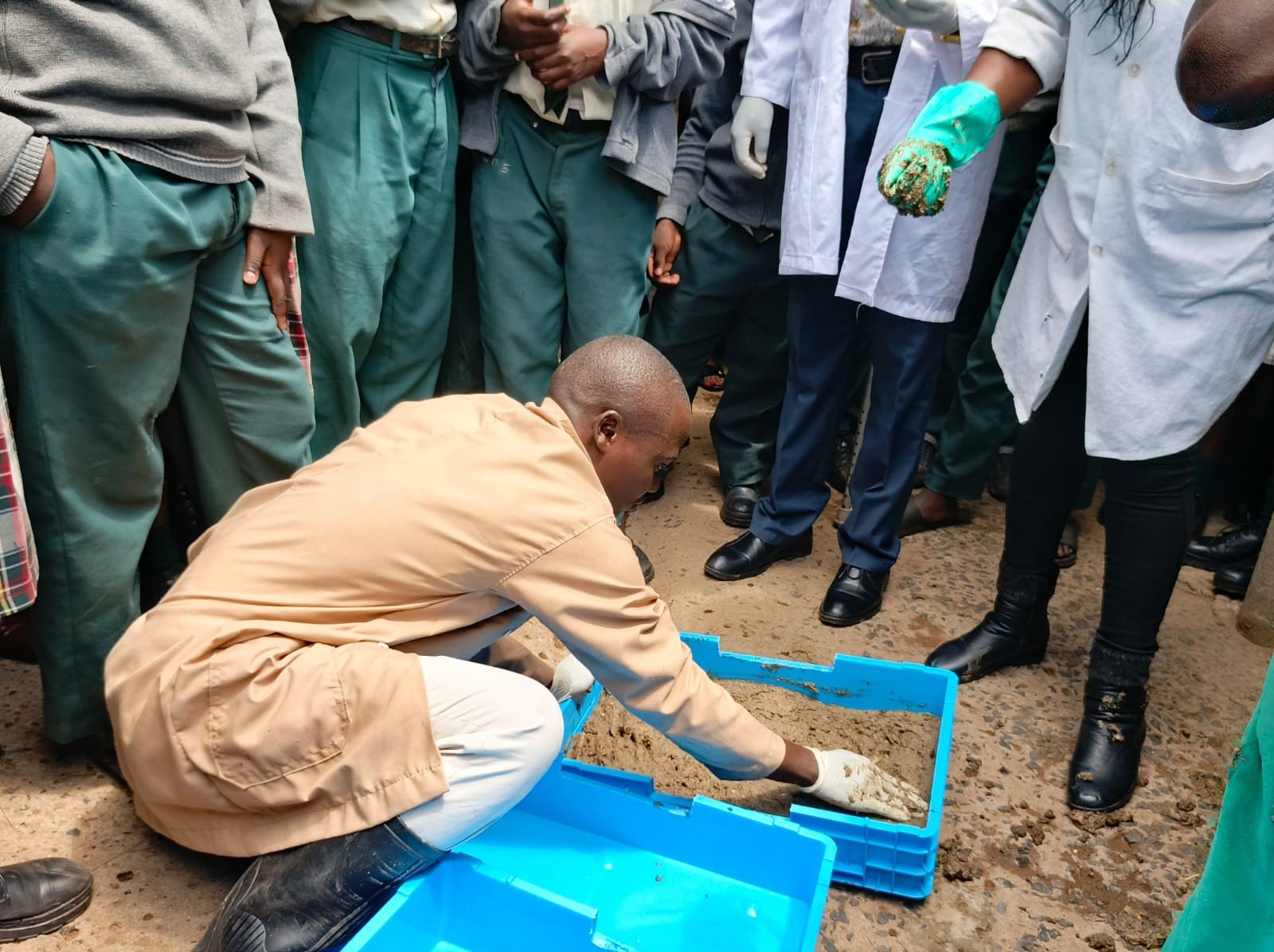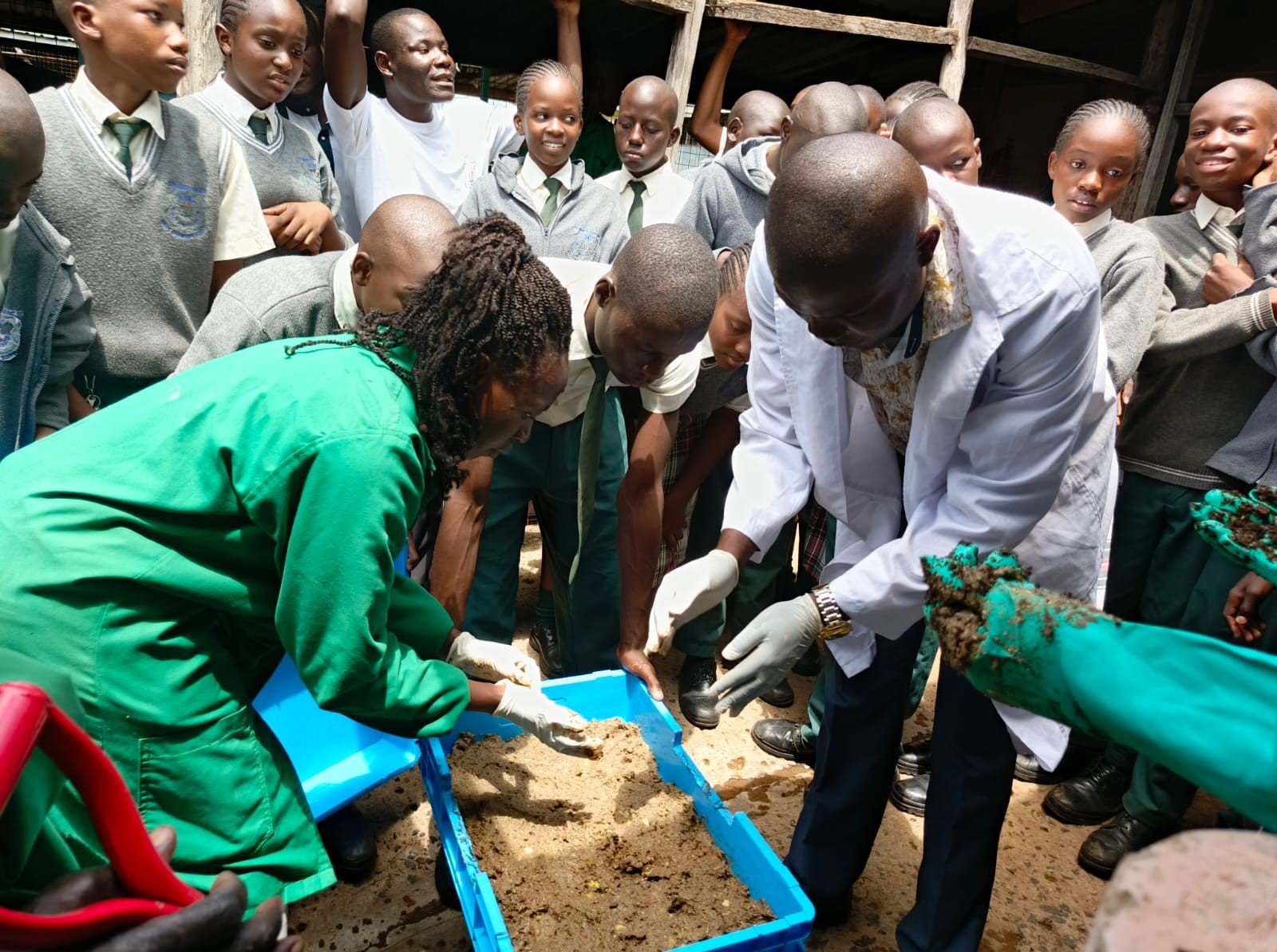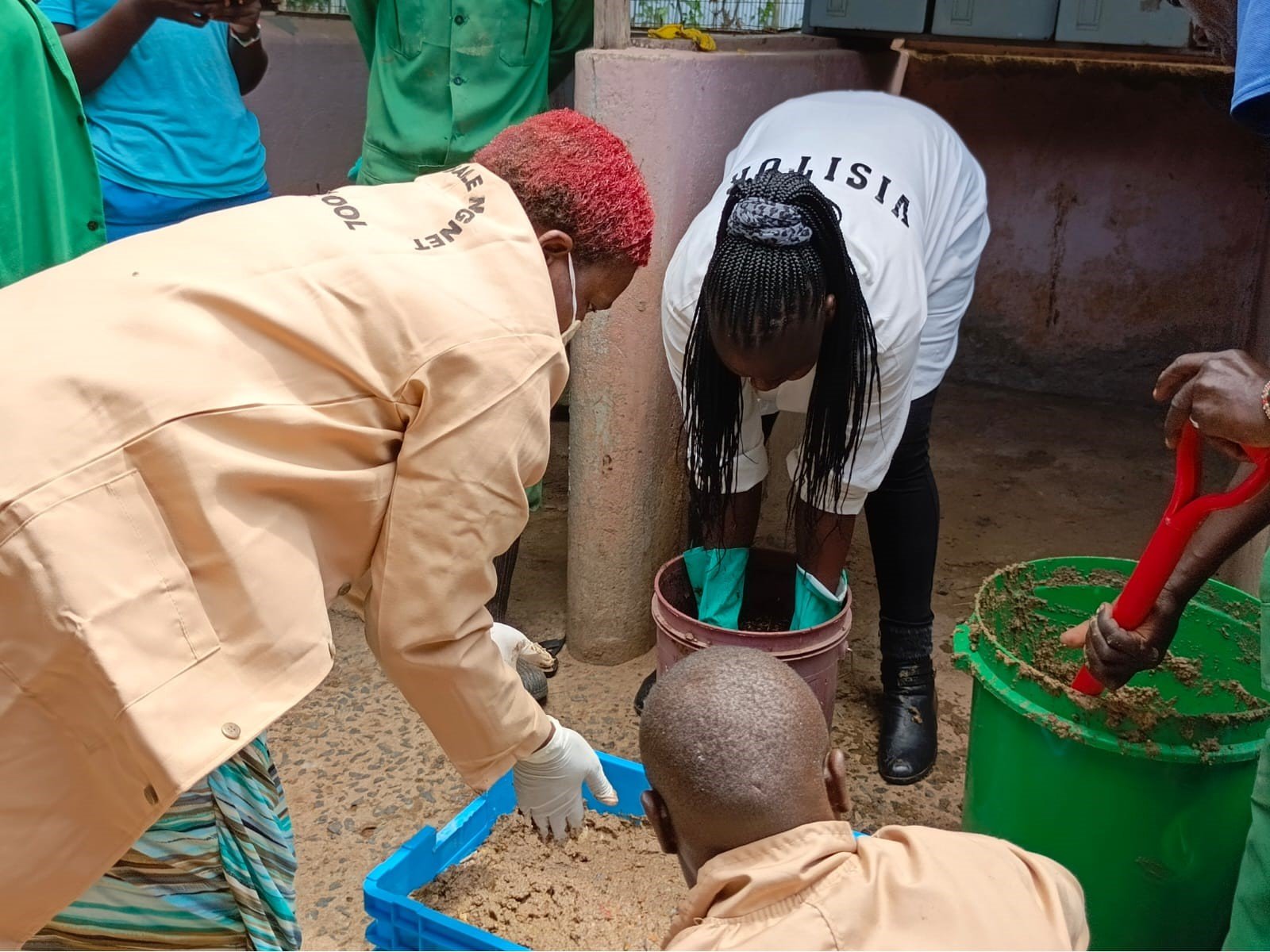Exciting Milestone at Nambale Magnet School: Pioneering Black Soldier Fly Farming for Sustainability and Community Impact
We are thrilled to announce a groundbreaking new chapter for Nambale Magnet School as we officially launch our Black Soldier Fly (BSF) rearing project. With support from the International Centre of Insect Physiology and Ecology (ICIPE), we’re not only embarking on an innovative journey but also establishing ourselves as a satellite training center for the Busia community. This initiative marks a significant step forward in our commitment to sustainable practices, community empowerment, and environmental stewardship.
The Power of Black Soldier Fly Farming: A Game Changer for Our School and Community
BSF farming offers numerous benefits that align with our vision for sustainability and community impact.
This remarkable process utilizes BSF larvae to convert organic waste into valuable resources, delivering transformative results in several key areas:
- Waste Reduction and Organic Fertilizer Production: Within just two weeks, organic waste is converted into nutrient-rich fertilizer. This process not only tackles local waste management challenges but also provides a natural and effective solution for enriching soil, benefiting both our school farm and surrounding agricultural areas.
- High-Protein Feed for Livestock: The larvae produced in our facility are packed with protein—up to 60%—making them an ideal, sustainable feed source for poultry, pigs, and fish. This locally sourced feed reduces reliance on conventional, costly feed and contributes to our school’s financial sustainability by significantly lowering expenses.
- Valuable By-Products for Pharmaceutical and Agricultural Use: Beyond their role in animal feed, the larvae’s exoskeletons contain chitin, a valuable resource for the pharmaceutical industry. Additionally, the frass produced—an organic, insect-based fertilizer—boosts soil health and aids in pest suppression, offering a sustainable alternative to chemical fertilizers.
Our Goals and the Far-Reaching Impact of BSF Farming
At Nambale Magnet School, we envision this project as a cornerstone of our sustainability efforts, with objectives that extend well beyond our campus. Here’s how BSF farming will transform our school and the broader community:
- Reducing Livestock Feed Costs: With the high-protein larvae, we aim to reduce the costs associated with feeding our poultry and pigs, enabling us to reallocate resources to other areas of need and continue our commitment to self-sufficiency.
- Enhancing Soil Fertility and Supporting Local Agriculture: The organic fertilizer generated through this process will be used on our school farm and made available commercially, supporting local farmers who seek environmentally friendly solutions to boost crop yield.
- Sustainable Waste Management: BSF farming allows us to effectively compost organic waste, transforming it into valuable fertilizer rather than sending it to landfills. This approach is not only eco-friendly but also aligns with our mission of instilling sustainable practices within our school community.
- Empowering the Busia Community: As a satellite training center, we are poised to share the knowledge and benefits of BSF farming with our neighbors. This knowledge transfer will empower local families and farmers to implement similar practices, enhancing their livelihoods and contributing to a more sustainable region.
This milestone in our journey is more than just an agricultural project; it’s a commitment to sustainable development, community empowerment, and innovation in rural Kenya. By investing in BSF farming, Nambale Magnet School is laying the foundation for a future where waste is minimized, resources are maximized, and communities are strengthened through shared knowledge and sustainable practices. We look forward to sharing more about the impact of this initiative and witnessing the positive changes it will bring to our school and the wider Busia community. Stay connected with us as we embark on this transformative journey!







